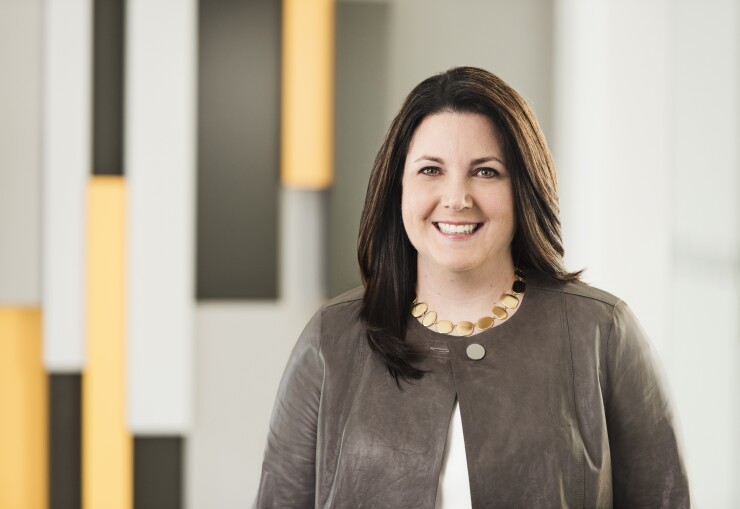With Walmart
The tightening relationship between mobile and online shopping is likely a big focus for Walmart, which is looking to optimize its Walmart Pay app in stores while supercharging its e-commerce and delivery services.
Stamford, Conn.-based Synchrony has a long list of retail card clients, but the Walmart portfolio accounts for about 10% of Synchrony’s fee and loan revenue, according to reports. One of Synchrony’s other private-label card clients is Amazon, a key rival to Walmart, which is pushing hard to transform itself into an e-commerce juggernaut.

Synchrony prides itself on functioning as a digital-age startup with expertise in artificial intelligence and machine learning. It regularly hosts internal hackathons to drive innovation and anticipate market shifts.
Capital One has strong digital competency, as one of the first major banks
Synchrony—formed four years ago in a spinoff of GE—has become quite unrecognizable from the staid, mature company it grew out of, according to Carol Juel, Synchrony’s executive vice president and chief information officer, who has been honored among PaymentsSource's
Last year Synchrony introduced the SyPi plug-in connecting 19 retail clients' store credit cards to their mobile apps. Consumers can apply for the Walmart store card within its app via SyPi.
A few months ago, Synchrony rolled out one of the first bot-assisted tools for a private-label credit card, creating an
“These things are evolving so fast—who would have thought two years ago that you’d be talking to a device in your kitchen, asking about the weather?” Juel said.
Several months ago, Synchrony began deploying an AI-enhanced virtual assistant, Sydney, to streamline and improve customer service. Sydney's virtual tools show big promise for a growing number of consumer who prefer a digital path for resolving issues, according to Juel.
“Today we’re only answering a fraction of consumer queries with chatbots, but as demographics shift over time, we believe segments of consumers will begin to accept and even expect a digital experience in customer service,” she said.
Synchrony is also pouring energy into robotic process automation to eliminate repetitive and redundant actions across its organization. The project can also connect more of Synchrony's operations to machine learning to harness the vast mountains of data available from its retail clients.
The detail and granularity of customer and store data available with private label credit cards sets the category apart from open-loop credit cards, providing richer opportunities to fine-tune everything from credit offers to promotions, marketing and attacking fraud, according to Juel.
“We recognize the power of data that’s uniquely available to us, and in the past few years we’ve developed an agile organization to capture that data and harness it with new ideas and approaches,” she said.
Over the past year, Synchrony has also been experimenting with proofs of concept over how to predict a consumer’s next logical purchase.
“Machine learning is data on data on data, and when you combine it with insights we have from consumers and the marketplace, we are just at the beginning of really exciting stuff that will improve the customer experience,” Juel said.
But computers don't have empathy, and Synchrony recognizes that.
“There are times when consumers call to explain a situation, and many times now and in the foreseeable future, they may need to talk to a human, and we’ll account for that,” Juel said.





